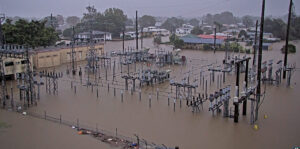The House of Lords says that Christopher Monckton is not entitled to claim he is a member of that House, but he disputes this. The internet is full of scientists carefully debunking the claims about climate change made by him, but he is similarly impervious to correction. Put simply, Lord Monckton is a case study of the emphasis placed by the media on confidence over content. A harder question for the media, however, is why they have given so much prominence to climate sceptics with no qualifications in science when they pay virtually no attention to immunisation sceptics without qualification in epidemiology or fluoride sceptics with no qualifications in chemistry or biology? So, how do you debate someone who is impervious to evidence? It’s not easy, but here are a few suggestions.
Related documents
Between the Lines Newsletter
The biggest stories and the best analysis from the team at the Australia Institute, delivered to your inbox every fortnight.
You might also like
Dutton’s nuclear push will cost renewable jobs
Dutton’s nuclear push will cost renewable jobs As Australia’s federal election campaign has finally begun, opposition leader Peter Dutton’s proposal to spend hundreds of billions in public money to build seven nuclear power plants across the country has been carefully scrutinized. The technological unfeasibility, staggering cost, and scant detail of the Coalition’s nuclear proposal have
Mike Rann: Gas lobby using “tobacco tactics” to keep polluting, tax breaks
Former South Australian Premier, the Hon. Mike Rann AC, has criticised the “almost tax‑free” gas exports driving billion‑dollar profits for the fossil fuel industry in Australia.
Climate crisis escalates cost-of-living pressures
A new report has found direct connections between the climate crisis and rising cost-of-living pressures. Failure to lower emissions now will only aggravate the crisis, with each moment of inaction compounding the pressure on households.



